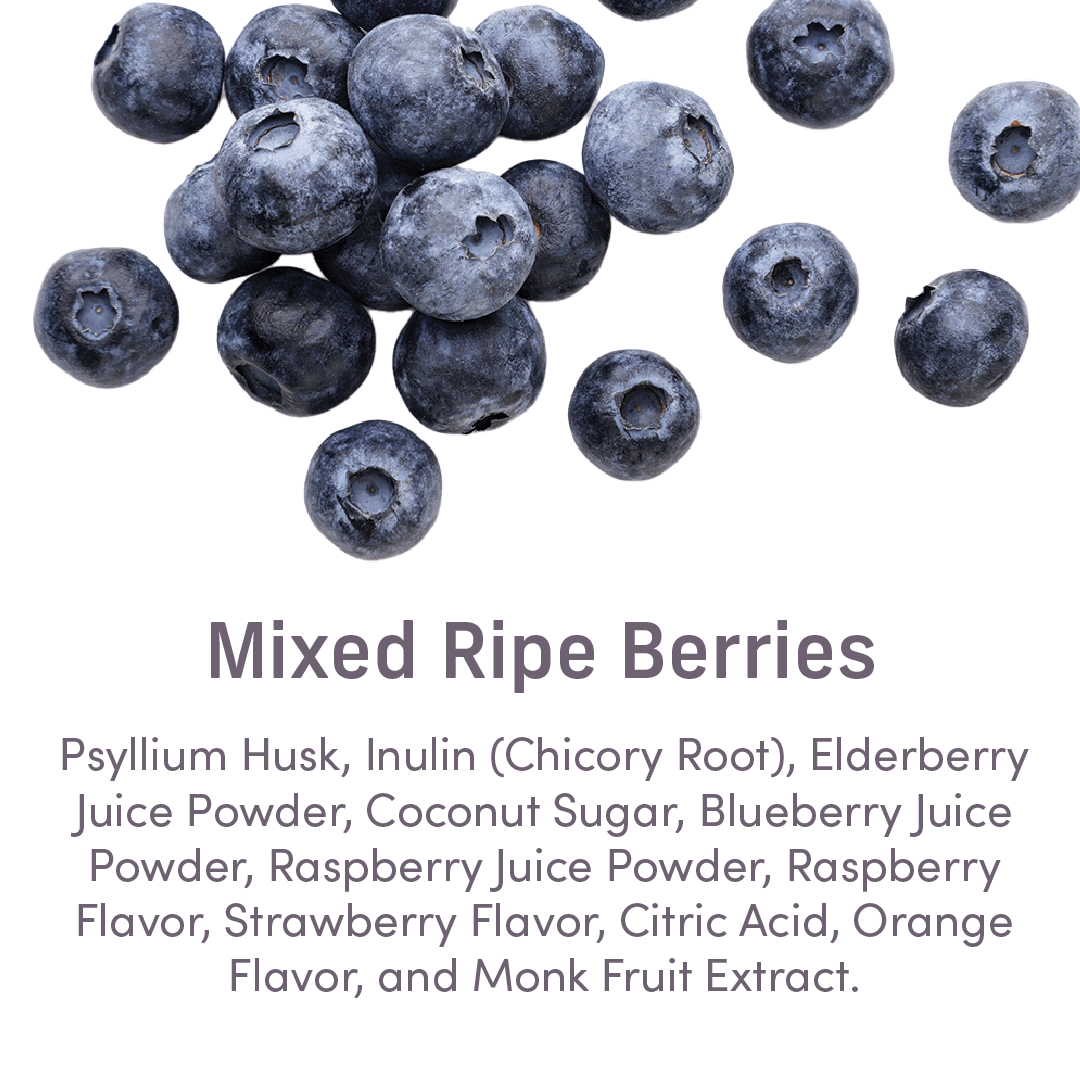You know the feeling: the butterflies in your stomach before a big day at work or that feeling of dread before a difficult conversation. You may be familiar with the phrase “gut feeling,” and it’s a lot more accurate than you might realize! Digestive issues can be stressful and evidence shows that poor digestion can influence your mood in more ways than one. Read on to learn how fiber can help boost your mood.
Stress and Gut Health

Lifetime / Via media.giphy.com
Your stress levels and your gut health are intrinsically connected. Your gut sends signals to your brain, and your brain sends signals back to your gut. They’re are talking to each other.
Here’s how it works: up to 90% of your body’s serotonin is produced in your gut. (FYI: Serotonin is a chemical messenger that acts as a mood stabilizer.) The higher your serotonin levels, the lower the risk of depression. In fact, most antidepressants work by increasing the amount of serotonin available to your brain cells. The key to happiness can literally be found in your gut!
Stress, on the other hand, has the unfortunate side effect of increasing your gut motility (or the contraction of the muscles that combine and move materials in your gastrointestinal tract) and fluid secretion, which is a fancier way of saying that during a stressful event, you might get a bout of diarrhea or feel the repeated urge to pee.
Stomach Anxiety: It’s Not Just In Your Head!
When you feel butterflies in your stomach before doing a presentation at school or work, that is the nervousness and anxiety you feel manifesting itself in your gut. This connection is the enteric nervous system, which is a part of the nervous system and controls motor functions, local blood flow, mucosal transport and secretions, and modulates immune and endocrine functions. Whether it’s romance or an actual roller coaster, the emotions you’re feeling in your brain travel all the way down to your stomach.
Gut Health and Mood
Now that we know it’s connected. These are a few of the ways that your digestive system affects your mood:
Poor Digestion Can Trigger Depression
This is because of how inflammation affects the body. When there is inflammation in your gut (aka your “second brain”), the body experiences it as digestive upset, but our brains interpret it as depression. So, not only do you feel worse mentally because your stomach is upset but there is an actual physical link between poor digestion and depression.
According to a Harvard Health study, “A troubled intestine can send signals to the brain, just as a troubled brain can send signals to the gut. Therefore, a person's stomach or intestinal distress can be the cause or the product of anxiety, stress, or depression. That's because the brain and the gastrointestinal (GI) system are intimately connected.”
Irritable Bowel Syndrome and Anxiety

Team Coco / Via media.giphy.com
Irritable Bowel Syndrome or IBS affects your digestive system and can cause pain and issues with your bowel movements. IBS can also cause anxiety, especially when you’re on a hike with no bathroom nearby and you suddenly feel the urge to go. As expected, anxiety can worsen the symptoms of IBS.
Gut Sensitivity = More Stress
Other researchers at Loyola Medicine’s Digestive Health Program believe there is a link between higher gut sensitivity and higher stress levels. Some people have a higher gut sensitivity (which is a non-medical way of saying they have a more sensitive stomach) than others. These people are more likely to experience the symptoms of stress in their guts, whether it’s just mild gas or more serious ulcerative colitis.
Our Favorite Foods for Your Mood
You are what you eat. Food affects our mood! What you put into your body can have a major impact on how you feel. Look for foods that will help boost your gut health *and* your mood. (P.S.: While it can be tempting to reach for your favorite sugary, salty, or high-cal snacks when you’re in a bad mood, those treats can have additional consequences for both your stomach and your state of mind.)
Check out some of our favorite mood foods:
Fiber
Of course, fiber is at the top of the list. Fiber is amazing! A high-fiber diet has been associated with lowering depression risk and promoting mental well-being, particularly in women. Additionally, the study shows a link between more fiber and fewer symptoms of depression existing in premenopausal women.
Fiber also helps improve your digestion, which we know improves your mood!
Dark Chocolate
Yes, chocolate really can make you happier. It is rich in not only deliciousness but also compounds that increase all those feel-good chemicals in your brain! But stick to dark chocolate: milk chocolate is higher in added sugar and fat.
Fermented Foods
Fermented foods, like yogurt, kefir, and kombucha, are rich in probiotics that increase the growth of healthy bacteria in your gut and may even increase serotonin levels.
Bananas
A banana a day keeps the bad mood away! Bananas are high in fiber, which we already know improves your mood. Plus, they have lots of vitamin B6, which helps synthesize those feel-good neurotransmitters, like serotonin and dopamine.
Oats
Oats are another excellent source of fiber, as well as iron, which can help boost your mood if you are anemic (lacking enough healthy red blood cells).
Boost Your Mood with Bonny!
If you want to eat, poop, and be happy, try a tall glass of Bonny. Bonny is your new favorite fiber supplement that helps ease your digestion because its vegan, gluten-free, delicious, and flavored with real fruit.
Bonny comes in delicious flavors like Apple Pie, Mixed Ripe Berries, and Super, Strawberry
As always, we wish you pleasant poops and mood!




